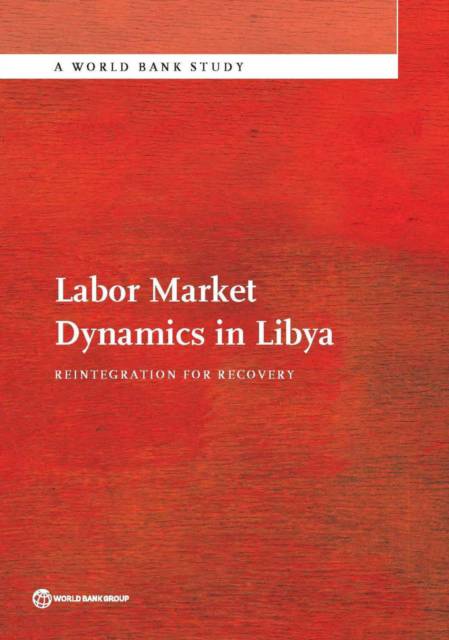
Je cadeautjes zeker op tijd in huis hebben voor de feestdagen? Kom langs in onze winkels en vind het perfecte geschenk!
- Afhalen na 1 uur in een winkel met voorraad
- Gratis thuislevering in België vanaf € 30
- Ruim aanbod met 7 miljoen producten
Je cadeautjes zeker op tijd in huis hebben voor de feestdagen? Kom langs in onze winkels en vind het perfecte geschenk!
- Afhalen na 1 uur in een winkel met voorraad
- Gratis thuislevering in België vanaf € 30
- Ruim aanbod met 7 miljoen producten
Zoeken
Omschrijving
Since the 2011 uprising that toppled the former regime, Libya has been mired in deep political strife. An economy in which agriculture once flourished was converted wholesale to an oil-based rentier state of the most extreme kind. Following the immediate post-revolution oil-consumption boom, in 2014 Libya's economy is in recession. Security is the greatest challenge to stability (World Bank 2014). Today, limited opportunities exist for reintegrating youth and ex-combatants into the labor market. This policy note provides an initial assessment of Libya's labor market and discusses policy options for promoting employability as part of a broader jobs strategy. It is intended as a contribution to evidence on Libya's labor market for the benefit of policy makers, civil society and the broader international community. The report finds that the overall unemployment rate in Libya increased from 13.5 percent in 2010 prior to the uprising to 19 percent as of 2012, having changed little since then. Youth unemployment stands at approximately 48 percent and female unemployment 25 percent. The vast majority (85 percent) of Libya's active labor force is employed in the public sector, a high rate even by regional standards. The rate for women is even higher (93 percent). Employment in industry (largely the oil sector) and agriculture accounts for only 10 percent of the labor force. While nearly all public sector workers are covered by some form of social insurance, only 46 percent of private sector workers are enrolled - a striking difference. The report further discusses the implications of Libyan jobseeker profiles. Thirty percent of firms have reported difficulty in recruiting qualified Libyan nationals. Only 15-30 percent of Libya's labor force is relatively skilled and likely could be hired readily if given access to basic job training and job search assistance. For the remainder of the unemployed work force, targeted interventions would need to be designed for advanced skills development, vocational training, reconversion, and apprenticeship and entrepreneurship programs. The report discusses options for shifting Libya from a rentier state to a diversified, productive economy through economic and technical partnerships to help accelerate creating economic opportunities and jobs.
Specificaties
Betrokkenen
- Auteur(s):
- Uitgeverij:
Inhoud
- Aantal bladzijden:
- 100
- Taal:
- Engels
- Reeks:
Eigenschappen
- Productcode (EAN):
- 9781464805660
- Verschijningsdatum:
- 3/06/2015
- Uitvoering:
- Paperback
- Formaat:
- Trade paperback (VS)
- Afmetingen:
- 178 mm x 254 mm
- Gewicht:
- 190 g

Alleen bij Standaard Boekhandel
+ 62 punten op je klantenkaart van Standaard Boekhandel
Beoordelingen
We publiceren alleen reviews die voldoen aan de voorwaarden voor reviews. Bekijk onze voorwaarden voor reviews.









